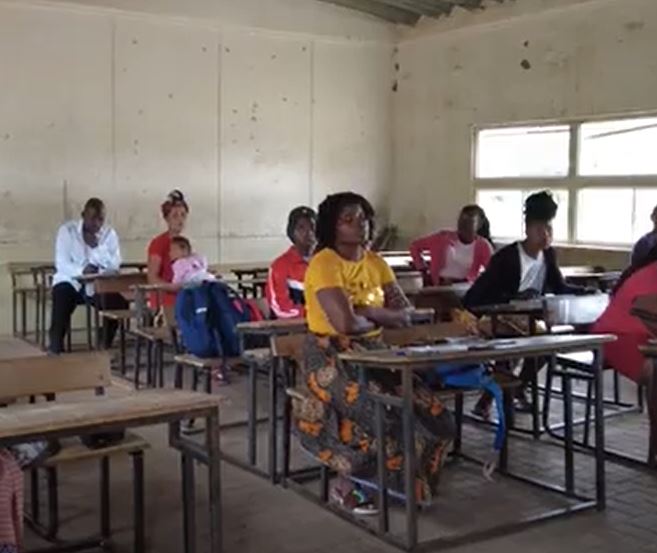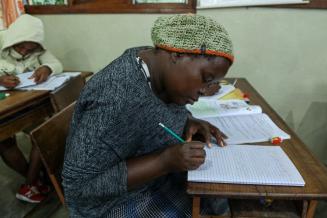"I enrolled in this course because I realized that I needed education," says Olga Alberto Mugabe, a beneficiary of the UNESCO-supported new curriculum for youth and adults. She works selling vegetables locally and she started attending the 'Wuxa Learning Centre' to improve her literacy. When Olga first joined, she could not read or write but today, when her clients make orders via text messages, she can identify who is making orders for the cabbages and lettuces that she sells. "Today, when I am home alone and someone sends a message, I can read and understand."

Unlocking potential: How UNESCO is supporting adult education in Mozambique
UNESCO's Capacity Development for Education programme (CapED) has supported the Government to develop a new curriculum for youth and adults, which is currently being rolled out nationwide. The curriculum offers complete primary education equivalent to grades one to six for youth and adults. As well as covering core subjects including mathematics and life skills, it also has a multilingual approach incorporating Portuguese and five Mozambican languages to support learners who do not speak Portuguese as their first language.
The curriculum, which has already been piloted in several adult education centers, aims to benefit some 6,000 adult learners by 2025. To date, the CapED Programme has supported some 500 educators to be trained to implement the new curriculum. The roll out of the curriculum is also being supported by development partners who are providing financial support to print textbooks and learning materials.

Efforts at the sector-wide policy and planning level
To date, a key achievement is that the Government has recognized the importance of adult education, in the framework of the implementation of the new Education System Law approved in 2018, adult education has been included in the Education Sector Plan 2020-2029. In 2023, the Programme supported the Government to update the Central Level Operation Plan (2023-2025), which defines key strategic action, targets and indicators to implement the Sector Plan. Looking ahead, CapED will continue supporting the development of the operational plan at the provincial level and will provide capacity development support to Ministry staff at central and decentralized level and learning center managers to better monitor and evaluate the plan's implementation. This year, more than 13 million of students from primary, secondary and adult education programmes were enrolled in the system under leadership of the Ministry of Education,
The efforts in the field of adult education are echoed by a strategy launched by the President in 2021 to boost adult education and increase national literacy rates. The drive resulted in a significant increase in the number of adult learners and learning centres. The Government is also considering the establishment of more learning centres in areas where there are large geographical distances between primary and secondary schools and is exploring the expansion of distance learning opportunities.
Looking ahead there are plans to further develop the curriculum to offer education equivalent to lower secondary level, providing learners with the equivalent of nine years of education. Additionally, efforts are underway to adapt secondary education materials for adult distance learning and improve coordination between adult education and technical and vocational education and training (TVET).






